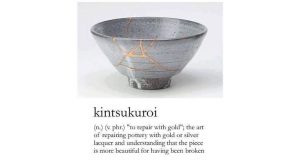Epiphany 5A 16th February 2014
Matt: 5:13-20; Is 58:1-12
We’ve spent the last 2 weeks focusing on the Beatitudes: Matthew’s exposition of Jesus’ great teaching. Although there is far more that could be said, I have no intention to do so – except to say that today’s reading must be read in close relation to the beatitudes: the elements of context that illuminate the meaning of the beatitudes are also important for this pericope: it is as though this passage is the practical outworking of Jesus’ teaching in the sermon on the mount. So I hope you can remember what Peter and George have said before me, and hold it in mind as I begin.
 I think we forget just what valuable commodities salt and light were to the ancient world. While we eat far more of it than we need today, in ancient times a lack of salt in the diet was a serious problem – one that could lead to severe cramps, or even death.
I think we forget just what valuable commodities salt and light were to the ancient world. While we eat far more of it than we need today, in ancient times a lack of salt in the diet was a serious problem – one that could lead to severe cramps, or even death.
On Friday I made “salt dough” for a kids craft activity using several cups of salt. It probably cost me a few cents. But in the ancient world salt was an incredibly expensive item – men fought wars over it. People were sold into slavery for it. In the Middle ages, some thousand years after Jesus’ day, teams of as many as 40,000 camels, enough to form a caravan 70 miles long conveyed salt from Timbuktu to the markets of the Mediterranean.
What was once so desperately hard to acquire is now so easy to get that we barely think about it. In fact in the West, we eat it to such excess that it leads to heart disease, high blood pressure and other serious diseases.
 Likewise light. If I want to see something at night I switch on a light. It’s easy. But for most of human history at night time it was DARK. VERY dark. A good candle –an item too expensive for many households – provided barely 1/100th of the illumination of a single 100 watt bulb. If you open your refrigerator door you’ll be met with more light than most households enjoyed in the ages before electricity. So light, like salt, is a commodity where a tiny amount can make an extraordinary difference.
Likewise light. If I want to see something at night I switch on a light. It’s easy. But for most of human history at night time it was DARK. VERY dark. A good candle –an item too expensive for many households – provided barely 1/100th of the illumination of a single 100 watt bulb. If you open your refrigerator door you’ll be met with more light than most households enjoyed in the ages before electricity. So light, like salt, is a commodity where a tiny amount can make an extraordinary difference.
Before we go further I want to consider the context of this passage – and indeed of the beatitudes. Who are they addressed to? The seemingly arbitrary nature of the chapter breaks, added in the middle ages, mean that we can miss this important element, unless we remember to read the text that comes just before – in this case the very end of chapter 4. The last three verses of chapter 4 tell us:
“Jesus went throughout Galilee, teaching in their synagogues and proclaiming the good news of the kingdom and curing every disease and every sickness among the people. So his fame spread throughout all Syria, and they brought to him all the sick, those who were afflicted with various diseases and pains, demoniacs, epileptics, and paralytics, and he cured them. And great crowds followed him from Galilee, the Decapolis, Jerusalem, Judea, and from beyond the Jordan.”
The crowd that gathered were not the good, faithful synagogue going religious elite.
They were those who came because they recognized that Jesus’ word brought healing and wholeness to those in need.
And they were needy. The categories listed are short hand for the groups of people who were the most desperate in Jesus’ day: the physically sick. The mentally ill. The foreigner. The outcast. The poor. So when Jesus preaches the Sermon on the Mount, it is to these people that he is speaking. And that changes everything.
Because Jesus is saying to these broken, damaged people – YOU, YOU are the salt of the earth. YOU – YOU are the light of the world. You, who are suffering grief, weighed down by mental illness, who makes mistake, take drugs, watch too much TV or argue with your spouse and kids – YOU are an incredibly valuable commodity.
YOU are filled with God, by the Holy Spirit – and YOU can help to transform others. Not by striving to be better or more perfect or more whole. But by allowing God in through the cracks. And allowing God’s light and salt out through the cracks and into the lives of others.
 There is a meme that has been doing the rounds on Facebook – it appears periodically every 12 months or so, and it came up again in my news feed earlier in the week. It seems to make this point graphically.
There is a meme that has been doing the rounds on Facebook – it appears periodically every 12 months or so, and it came up again in my news feed earlier in the week. It seems to make this point graphically.
Now I’m not an expert on Japanese forms of pottery, but I like this meme. It is a good visual reminder of the point that I want to make. Without the cracks and breaks, this would be a simple, grey bowl. It is because of the cracks, the brokenness, that the potter, the creator, is able to mend it with gold.
The creator makes use of the brokenness to let the light through. And so I think it is with us. The beatitudes, and this teaching about salt and light is for us – precisely because we are broken: God uses our vulnerabilities, our imperfections to help us to support and care for others.
So what is the role of the law in all of this? If God uses our vulnerabilities, what is all this talk of law? Why does the law not pass away – unneeded now – replaced?
Or, on the other hand, Why do we so often hear these teachings expounded as a diatribe about why we need to be good Christians? To be holier than thou?
These teachings are not a set of abstract moral lessons. Do this – be good and you will be more blessed by God. Jesus is calling on Israel to be Israel.
This is what the law and the prophets pointed to: the way for God’s people to have the fullest, and richest relationship possible with God.
Rather than being a set of restrictions to tie them down and bind them up, the law was a gift from God to the people – intended to free them from the bonds of the things that destroyed them, that took them away from God – and free them for a right relationship with God. These laws remain because we still need to be reminded how to treat one another in love, care and respect – it is precisely because we are broken human beings who stuff up and damage one another that we need the law to help remind us how to remain in right relationship with one another, and with God.
So what is the relationship between Jesus and the law? To understand this we need to return again to the context of this passage.
As someone wisely pointed out to me yesterday at TGIS as we discussed what we thought we’d rename Matthew’s Magnificent Mountaintop Manifesto, it’s no accident that Jesus preaches this sermon on a mountain –the mountain is meant to clue us in: – to remind of mountaintop events in the Hebrew Scriptures.
• Moses receiving the law from God on Mount Sinai
• of imagery of Israel’s identity in relation to God – Jerusalem as the city on the hill.
The fact that Jesus gives his sermon on a mountain is a sign that for those who follow Jesus, he BECOMES the law.
As God gave the law to his people on a mountain via Moses, so Jesus gives his teaching on a mountain – and indeed ultimately becomes the Law himself. Instead of the law being merely the means of right living and a way of maintaining right relationship with God, Jesus becomes the Way through whom we are able to have relationship with God.
The disciples are therefore meant to respond to this call from Jesus in the same way as Israel was to respond to God: to repent, to turn around and to come back into right relationship with God.
Jesus becomes the salt for the world around. He becomes the light bringer to the nations. And, further on in the gospel he is the one who himself will be set upon a hill, outside the city walls, despised and mocked, rejected by those who thought themselves wise and law abiding. As Tom Wright reminds us: He became, when all others had rejected him, the one set on a hill who could not be hidden, embodying in himself what Jerusalem was meant to be but had not been, drawing all peoples to himself. The sermon on the mount is an agenda that Jesus himself carried out.”
Jesus as Salt and Light is something that truly transforms, that changes lives into something that can never be what they were before: lived by people who are in relationship with the God who created them.
So, what then are we to do with the law? The commands for how we should live? Are we to abandon them all together?
In Isaiah’s stinging rebuke to the people of Israel, seeds of the sermon on the mount, we find the answer.
True piety, the following of the law, must happen as part of the outward manifestation of sharing the blessings we have received with the world. Fasting is useless if it lets injustice go unchecked. Look after the poor, and your light will rise like the dawn. Just as Jesus is salt and light that transforms the lives of his followers, so we are called to be the same: an agent which changes and transforms the lives of those we meet.
We talk often about what this might mean. And it is true that if we went around the room we each do this in many different ways in our daily lives. We could pause and share them with one another. But what would it be like if the Banyule Network of Uniting Churches actually stopped and thought about how we might collectively be a Fresh Expression of God’s love in our neighborhood?
One of the things that strikes me about the Fresh Expressions movement is how often they are small, organic, seemingly insignificant things when they start. They do not cost a lot of money. The metaphor of salt and light is one that often crops up in the mission statements of these new movements. Just as it only takes a pinch of salt to flavor a whole dish, or a single candle to fight away the darkness, the language of salt and light, of small opportunities created to share the gospel with people can be the start of new communities of faith.
Here are some examples. If you’re interested in finding out more from the UK as a possible taster for the Fresh Expressions Intro course we’re going to run after Easter, you can look on the Fresh Expressions website to find out more: www.freshexpressions.org.uk
Workplace Fresh Expressions: eg: River Force A Fresh expression started by a couple of police officers in Merseyside who decided to meet for prayer and worship in their place of work. They now meet in the police station refectory with a group of up to 80 police officers. Imagine what a difference this “salt and light” is now making in their local area.
Café Churches: A plethora of examples – and one which we are beginning to explore this with CoDI and TGIS.
Messy Churches: – now “officially” 2000 of these worldwide – including Messy Church@Ivanhoe.
New Monastic movements: SPACE is a bit like one of these.
Fresh Expressions for people with learning difficulties, disabilities, mental illnesses etc.
There are a myriad of possibilities. What I hope and pray is this: that the Cross Generation community will embrace this opportunity to explore how God might be calling us corporately to be a light on a hill. How might we let the light of God’s love, the saltiness of our faith shine through our cracks? How might God use us to share his love with those around us who so desperately need to hear it?




